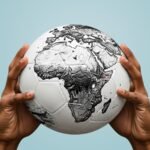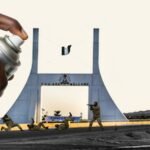Echoes of Solidarity: The Roots of a Continental Vision
In the vast tapestry of global governance, Africa stands as the cradle of humanity, a continent rich in diversity, resources, and untapped potential. Yet, for decades, its voice has been muted in the halls of power where decisions shaping international peace and security are made. The push for permanent representation on the world’s foremost security body emerges not as a mere request but as a profound assertion of self-determination and collective destiny. This movement traces its origins to the post-colonial era, when newly independent nations began to forge a unified front against lingering inequities in the international order.
The foundational spirit of this endeavor lies in the shared experiences of liberation struggles across the continent. From the windswept savannas of the south to the bustling markets of the west, African leaders recognized that true independence extended beyond national borders to encompass global equity. In the early 2000s, amid rising calls for reforming outdated global institutions, African states coalesced around a common stance. This vision emphasized rectifying historical oversights, where a body established in the aftermath of a world war excluded an entire continent comprising over a billion souls. The consensus forged during this period demanded not just inclusion, but full empowerment—seats with the authority to influence outcomes, including the power to veto decisions that could perpetuate injustice.
This collective aspiration was born from the realization that many of the world’s conflicts disproportionately affect African soil, yet resolutions are often imposed from afar. The continent’s leaders envisioned a reformed structure where Africa could safeguard its interests, promote peacebuilding rooted in local wisdom, and contribute to a multipolar world. This push reflects the Pan-Africanist ethos of unity, where the strength of one nation amplifies the resilience of all. It draws inspiration from trailblazers who dreamed of a united Africa, capable of negotiating on equal terms with global powers. As the continent grapples with evolving challenges like climate change, economic disparities, and geopolitical shifts, this historical foundation serves as a beacon, guiding efforts toward a future where Africa’s agency is undeniable.
Forging the Path: Contemporary Dynamics and Collective Resolve
Today, the clamor for Africa’s elevated role in global security architecture resonates louder than ever, fueled by a new generation of leaders committed to Pan-African ideals. Recent gatherings of continental visionaries have spotlighted this issue, with candidates vying for key positions in Africa’s premier union articulating bold plans. They advocate for two enduring seats equipped with comprehensive privileges, underscoring the necessity for Africa to speak with one resonant voice on matters of war, peace, and stability.
The context is one of transformation: Africa’s youthful population, projected to double by mid-century, represents a demographic dividend poised to drive innovation and economic growth. Yet, this potential is shadowed by persistent issues such as internal conflicts, political instability, and external interferences. The continent’s union, as a symbol of collective sovereignty, has faced tests, including the suspension of member states due to unconstitutional changes in government. These events highlight the need for internal reforms to strengthen governance, enhance peacekeeping capabilities, and foster intra-continental trade.
In debates and summits, leaders emphasize reducing dependency on foreign alliances for security, proposing instead a robust regional force funded through innovative mechanisms. Ideas like harmonizing currencies or establishing compensatory systems for trade in diverse monetary units aim to weave a tighter economic fabric. Regional blocs, serving as building blocks for continental integration, are seen as vital in easing barriers to movement and commerce. This contemporary push is not isolated; it intersects with global shifts, where emerging powers seek to recalibrate influence. Africa’s strategy involves leveraging its numerical strength in international forums, insisting on representation that mirrors its demographic and strategic weight.
The discourse also touches on the continent’s environmental stewardship, with its vast forests and minerals positioning it as a key player in the global green transition. Leaders call for unity in negotiating climate deals, ensuring that Africa’s development is not sacrificed on the altar of industrialized nations’ historical emissions. This holistic approach—blending security, economy, and ecology—embodies the Pan-Africanist dream of a self-reliant continent, where solidarity transcends borders to create a fortress of shared prosperity.
Shadows and Struggles: Confronting the Barriers to Continental Empowerment
No journey toward empowerment is without its thorns, and Africa’s quest for global parity is fraught with multifaceted challenges. Internal divisions pose significant hurdles; rivalries among nations for prominence can dilute the unified front essential for negotiating reforms. Questions linger: How will seats be allocated? Through rotation among regions, or based on economic might and diplomatic influence? These debates, while healthy, risk fracturing the consensus if not managed with wisdom and inclusivity.
Externally, resistance from entrenched powers complicates the path. The privilege of veto, a cornerstone of Africa’s demands, is viewed by some as a threat to the status quo, potentially leading to stalemates in decision-making. Geopolitical tensions, including proxy influences in African conflicts, further entangle the continent in webs of foreign agendas. Economic vulnerabilities exacerbate these issues; high-interest debts and unequal trade terms sap resources that could fuel self-sufficiency.
Disputes within the continental union add layers of complexity. Expulsions due to coups reflect deeper governance crises, where democratic backsliding undermines credibility. Challenges like funding shortfalls for institutional reforms hinder the union’s ability to project strength. Moreover, the rise of non-state actors— from insurgent groups to multinational corporations—demands adaptive strategies that balance sovereignty with collaboration.
Yet, these obstacles are not insurmountable. They serve as crucibles for forging stronger institutions and encouraging dialogue that bridges divides. Pan-Africanist principles urge leaders to prioritize the collective good, transforming disputes into opportunities for deeper integration. By addressing root causes such as poverty and inequality, Africa can build resilience, turning challenges into stepping stones toward a future of unassailable unity.
Horizons of Hope: Envisioning Africa’s Ascendant Role in Global Harmony
Looking ahead, the future of Africa and its union brims with promise, contingent on realizing this pivotal aspiration for global representation. Securing enduring seats would catalyze a renaissance, empowering the continent to shape narratives that affect its destiny. Imagine an Africa where decisions on peacekeeping missions are informed by indigenous knowledge, leading to sustainable resolutions rather than imposed truces.
For the African Union, this milestone would invigorate its mandate, accelerating reforms to make it a more agile guardian of continental interests. Enhanced representation could unlock resources for development, from infrastructure megaprojects to educational revolutions that harness the youth bulge. A single currency or streamlined trade protocols might emerge, fostering an economic powerhouse that rivals any bloc.
The ripple effects extend to social spheres: Empowered women and youth, already driving change, would find amplified platforms. Climate action could pivot to Africa’s advantage, with green technologies creating jobs and preserving biodiversity. In security, a self-reliant force would deter conflicts, promoting a Pax Africana where dialogue supplants division.
Disputes may persist, but a fortified union could mediate them effectively, drawing on Pan-Africanist legacies of reconciliation. Challenges such as migration and pandemics would be tackled collaboratively, turning vulnerabilities into strengths. Ultimately, this future envisions Africa not as a recipient of aid, but as a co-architect of the global order—a continent where unity begets prosperity, and sovereignty inspires the world.
In this grand vision, the push for representation is more than a diplomatic endeavor; it is the fulfillment of a Pan-Africanist prophecy, where the giant awakens to claim its rightful place under the sun.











